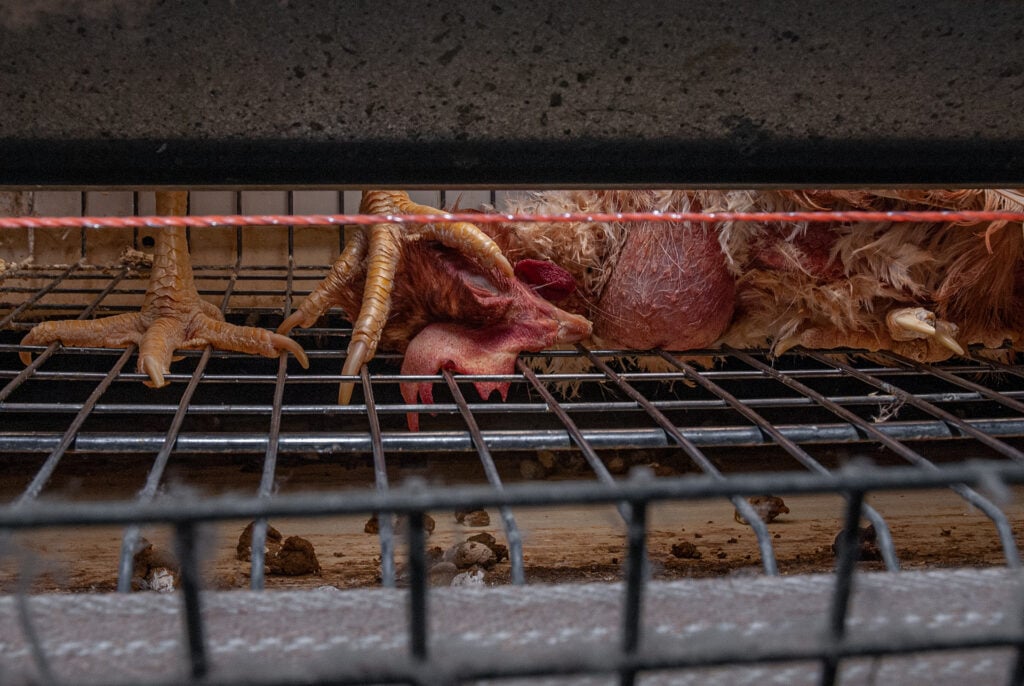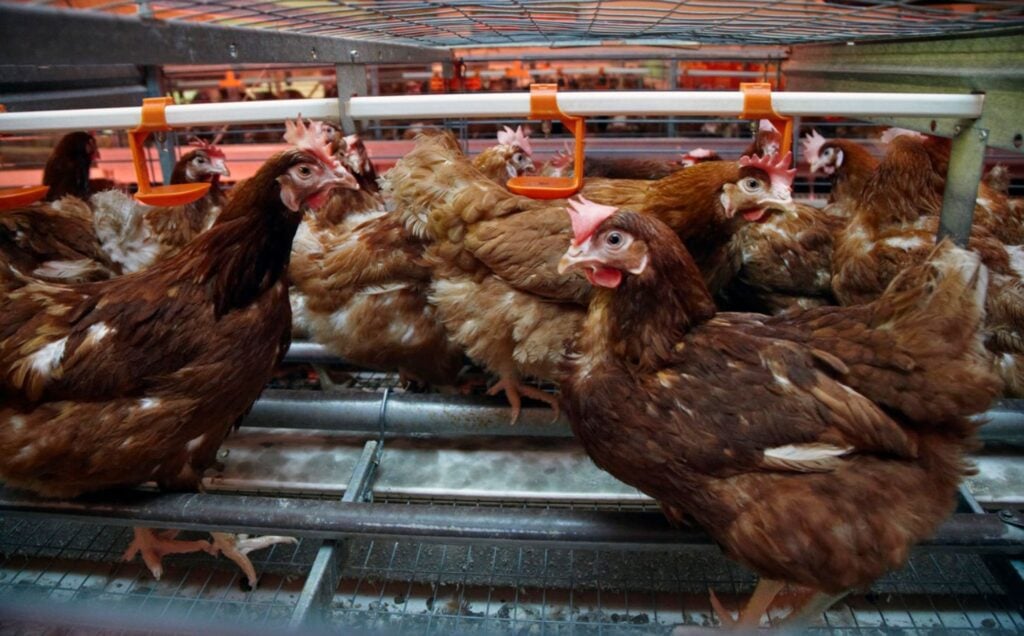A group of vets in New Zealand (Aotearoa) have called for increased clarity on egg packaging to ensure consumers know when they are buying products from caged hens.
Some egg producers stand accused of using deliberately confusing language to make their products seem more welfare-compliant. This, after a ban on battery farming began on in January of this year, with producers switching to marginally larger wire enclosures.
Helen Beattie, managing director of Veterinarians for Animal Welfare Aotearoa (VAWA), cites “blurring messages” about the continued use of cages as a cause for consumer concern.
“Many Kiwis don’t know that colony cages still exist and house about a third of our layer hens,” Beattie said in a statement.
She went on to comment that some egg producers “deliberately avoid use of the word cage” on their product packaging. Instead, they appear to romanticize the notion of “fresh colony eggs.”
“Unless an egg-lover understands the farming systems used in New Zealand, it’s easy to miss that where marketing states ‘colony’-then-insert-anything here, it ultimately means ‘colony cage’ with marginal improvements in the hens’ lives,” she concluded.
It’s the lack of transparency surrounding colony farming techniques that has propelled vets to demand increased honesty.

Battery vs colony egg farming: how do they differ?
Though larger than battery cages, colony enclosures still facilitate multiple birds being crammed into metal boxes. This restricts their movements and natural behaviors, such as dust bathing, scratching, and pecking.
Colony cages contain around 60 birds, each having around 750 square centimeters (approximately an A4 sheet of paper) of space. Such enclosures are permitted to be stacked on top of each other, just as they were in battery operations.
Battery and colony laying are very similar, with the latter affording birds a little more space. However, experts say that it is still not nearly enough to live a life free from suffering. This has led organizations including SAFE to regard colony cages as breaching New Zealand’s Animal Welfare Act 1999.
The Royal New Zealand Society for the Prevention of Cruelty to Animals (SPCA) also opposes colony cages. The organization has disagreed with the Ministry for Primary Industries’ (MPI) claim that the confines allow hens to participate in natural behaviors.
The SPCA further says that an increasing number of consumers do not want to support colony eggs. This could lead to speculation that many are unwittingly doing so.
New Zealand’s egg farm cruelty
This is not the first time that New Zealand egg farmers have been called out for a lack of transparency.
In 2021, a whistleblower from the egg industry revealed extensive animal cruelty at a Northern Eggs chicken farm. The MPI claimed that it found no evidence of animal mistreatment. It later admitted that it forewarned Northern Eggs that it would be investigating, thereby allowing time to discard incriminating evidence.






